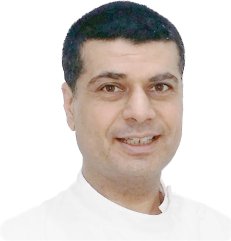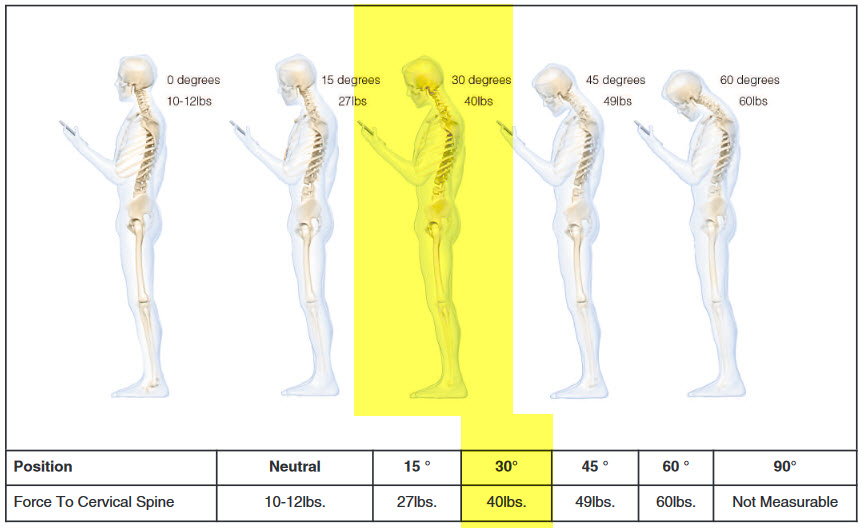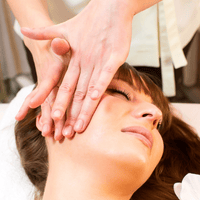Common Causes of Head and Neck Pain
 The neck is the most mobile part of your spine and it must balance a head weighing around 5kg. It's astonishing to note when the neck is bent forward by only 30º, the force at the base of the neck is more than 3½ times it’s actual weight.
The neck is the most mobile part of your spine and it must balance a head weighing around 5kg. It's astonishing to note when the neck is bent forward by only 30º, the force at the base of the neck is more than 3½ times it’s actual weight.
This is the equivalent of having a head weighing 18kg. Imagine the force now passing through the lower neck.
This rises to a whopping 27kg with the head fully flexed at 60º.
This happens because of leverage. The further away from the resting position the greater the force at the fulcrum (ie base of neck in this case). Reference article click here please.
It's no wonder accumulated hours of texting creates neck and shoulder tension. It's also no wonder why hours on a PC cause a similar build-up of tension. Poor posture can also lead to this effect with drooping neck and shoulders.
Once tension builds it may travel up to the head or down to the shoulders, or the upper back; or for some people both places.
Headache affecting the Face
There is an important bone inside the skull known as the sphenoid bone. This bone connects to every other skull bone. If muscular tension causes the sphenoid bone to be put-upon, even slightly, it can cause cranial strains leading to headaches, eye pain, sinus pain, ear pain and even jaw pain etc, depending on which bone has been affected by the sphenoid.
Migraine Headaches affecting the Senses
Sometimes very bad headaches are also termed Migraine Headaches. In true migraine headaches there are associated signs not directly attributable to a muscular cause. That said there is an overlap of symptoms such as, blurry eye, photosensitivity, face pain, hearing changes, feelings of giddiness. Government guideline suggest you check with a doctor first to rule out medical problems before visiting any manual therapist including physiotherapy, osteopaths, chiropractors or a massage therapist.
Cervicogenic Headaches & Muzzy Head
This is a headache that arises when the neck muscles tighten up. In particular, when the muscles of the neck are constricted, they might in some cases pinch the blood flow passing through the neck (the vertebral artery on the way to the brain). These two vertebral arteries are important as they travel through the spinal bones (vertebrae) and onto the brain. A reduction in blood flow can lead to a feeling of tiredness, mussiness, ‘cotton wool in my head’, ‘feels like I am spaced out’ amongst other symptoms.
Top Tips for Beating Head and Neck Pain
1. Prevention is better than cure. Please take regular breaks:
- Set your phone or PC to beep every 30-45 minutes. A simple online timer is here https://www.timeanddate.com/timer/
- Drink more water, so you will have to go to the rest room more often.
- If you work in a high-rise building use the stairs to go the rest room on another floor.
- Get out of your chair to speak to a colleague (rather than email them).
- Consider using a standing desk, or at least rest raise your monitor and keyboard higher if possible.
2. Better way of using a cell phone or tablet:
3. Download this free video exercise Exercise PDF – Including Video
 Vispi Jamooji DO, PG Cert Spop
Vispi Jamooji DO, PG Cert Spop
Osteopath
Specialist Paediatric Osteopath
Cranial Osteopath
Call 0208 946 2331 to see how we we can help you today.
NOTE: all advice and exercises are for guidance only. Every pain is different. These exercises may not agree with every back-pain complaint, so please stop immediately if pain arises. You are advised to seek professional help before following the advice or exercises.













